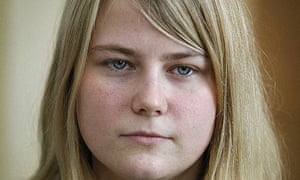Missing persons: the lost children who were found
Steven Stayner was seven when he was abducted in California by
Kenneth Parnell on the way home from school in 1972. Parnell called
Stayner "Dennis" and told people he was his son, while moving around
different areas of California. Stayner escaped aged 14, while Parnell
was at work, rescuing another boy at the same time. Stayner died in a
motorcycle crash nine years later. His story was dramatised in the TV
mini series I Know My First Name is Steven.
• Natascha Kampusch
was abducted by Wolfgang Priklopil on her way to school in Vienna,
Austria, in 1998, aged 10. Priklopil held her in a small cellar under
the garage of her house, although after a while he allowed her to move
about the house during the day. He also began taking her out of the
house with him, warning Kampusch he would kill her if she attracted
attention. She escaped in 2006 while her captor was on the phone.
Priklopil killed himself before police could find him.• Natasha Ryan disappeared from her family home in Queensland, Australia, aged 14, in 1998. In 2003, convicted child murderer Leonard John Fraser was on trial for Ryan's murder, after being secretly taped confessing to killing her, when she was found hiding in a cupboard at her boyfriend's home, half a mile from her mother's house, after an anonymous tip-off. Her boyfriend, Scott Black, was later jailed for perjury for telling the Fraser trial he did not know Ryan's whereabouts. He later married Ryan.
• Shawn Hornbeck went missing aged 11 in 2002 while riding his bicycle near his home in Missouri. More than four years later he was discovered by police searching for 13-year-old Ben Ownby, who had gone missing four days before the two boys were found in the Missouri flat of Michael Devlin. Devlin made Hornbeck pose as his son and took him along, against his will, when he abducted Ownby. Like Kampusch, Hornbeck was suspected of suffering from Stockholm Syndrome, a psychological phenomena sometimes seen in abducted hostages, in which the hostage shows signs of loyalty to the hostage-taker.
Since you’re here …
… we have a small favour to ask. More people are
reading the Guardian than ever but advertising revenues across the media
are falling fast. And unlike many news organisations, we haven’t put up
a paywall – we want to keep our journalism as open as we can. So you
can see why we need to ask for your help. The Guardian’s independent,
investigative journalism takes a lot of time, money and hard work to
produce. But we do it because we believe our perspective matters –
because it might well be your perspective, too.



No comments:
Post a Comment